- Like
- Digg
- Del
- Tumblr
- VKontakte
- Buffer
- Love This
- Odnoklassniki
- Meneame
- Blogger
- Amazon
- Yahoo Mail
- Gmail
- AOL
- Newsvine
- HackerNews
- Evernote
- MySpace
- Mail.ru
- Viadeo
- Line
- Comments
- Yummly
- SMS
- Viber
- Telegram
- Subscribe
- Skype
- Facebook Messenger
- Kakao
- LiveJournal
- Yammer
- Edgar
- Fintel
- Mix
- Instapaper
- Copy Link

When I started homeschooling over eleven years ago, I had no idea that there were different homeschool teaching styles (or philosophies, if you prefer to use a fancier word). I just started on my merry way and a few years later someone asked me if we were Charlotte Mason or Eclectic.
Say what?? Who in the world was Charlotte Mason and eclectic…well, that just sounded so scattered!
Honestly, I had no idea what my answer truly was, and it was something that made me sit down and look things over (because my Type A personality just HAD to know). For those of you newer to homeschooling, or maybe as clueless as I was, a quick look at several of the different approaches may be helpful to you too.
What are the Different Educational Philosophies?
Just like our children are all different, there are many different ways that we can approach teaching our children. Believe it or not, we as parents are different too and have different ideas and beliefs on how to best approach education. These approaches aren’t just in the homeschooling realm, but also exist in the public school realm as well.
It’s great to have a basic understanding of the different philosophies and honestly, they each have aspects that are helpful. Don’t put down one idea over another. There is something to glean from each area!!
This post briefly covers a few key philosophies: Traditional, Charlotte Mason, Classical, Unit Studies, Unschooling, and Eclectic. Keep in mind that you may identify with parts of different philosophies – and that’s okay!
Traditional
This method revolves more around traditional textbooks and worksheets to determine if a child is learning. Work may be graded, tests given, etc…and can look more similar to a traditional school setting. Many may say it just is the school classroom dropped into a home.
Your family may use this method in certain subject areas and not in all (for example math or grammar). It may also be your overall teaching style as well (we have friends who follow this method exclusively).
A few companies to consider for the traditional method: A Beka and Rod and Staff.
image courtesy of Microsoft
Charlotte Mason
This philosophy began in the 1800’s by a woman named Charlotte Mason. She believed that children should learn from real life through playing and creating. Part of the real-life learning would include plenty of nature walks and art studies. Instead of textbooks, children use “living books” – or books that make subjects come alive. This approach also includes more discussion and narration, not test taking for determining learning.
Helpful texts for this approach include A Charlotte Mason Companion by Karen Andreola and Ambleside Online.
Classical
This method uses the Trivium: reason, record, research, relate, and rhetoric. Not sure what that means? In the early stages of learning, children learn the basics of reading, writing, and math. They then move into the grammar stage, then the dialectic stage, and then rhetoric (usually high school age).
One of the key things that you’ll notice about this method is the four year teaching cycle of history and science (the topics repeat every four years). We have followed this approach in our history studies and you may already be familiar with a text that follows the classical approach, Story of the World. This method also frequently focuses on learning Latin as a part of study.
Helpful texts for this approach include The Well-Trained Mind by Jessie Wise and Susan Wise Bauer and Teaching the Trivium by Harvie and Laurie Bluedorn.
image courtesy of Microsoft
Unit Studies
This method of study is fairly straight forward. If your child is interested in the ocean, you would read books that covered that topic, write about topics that related to the ocean (writing/grammar/spelling), learn more about scientists and animals {science}, etc. It can also be tied into a literature theme (i.e. based on a book that is read together).
Basically, unit studies cover a certain theme. Some parents may come up with all of their material on their own for a theme, but there are many companies and sites that offer lessons and ideas packaged together. It might get a little trickier as students get older to include all subject areas. This is how we initially started our homeschool journey – with country studies that led us around the world and studying all sorts of different things!
A few companies that use the Unit Study approach: Five in a Row and Konos.
Unschooling
This method would be mainly opposite of the public school philosophy. Instruction is led by the interests of the child and is very relaxed. Formal lessons may not be involved. It follows the belief that children are all curious and natural learners and they will continue to learn as they grow and develop.
Book for further learning: How Children Learn by John Holt.
Eclectic
Basically, this method focuses on a little bit of this and a little bit of that. It’s eclectic! Maybe you are classical in your history approach, Charlotte Mason in science, a bit more traditional in math, etc… You cover subjects with your family in a manner that best suits your individual needs.
What is Your Teaching Style?
Quite honestly, our family fits more in this latter category now that we are a bit down the road of homeschooling. Depending on our children, we’ve adjusted pieces of our curriculum (and teaching) to flow with how they learn best and what works with our family.
Over the years you may notice your teaching style changes – that is fine!! Don’t panic! Be sure to read up on the different philosophies and do a little more research on your own too.
Have you determined your teaching style? Leave a comment below and tell us yours – we’d love to hear.
This post is a part of the Homeschool Basics series. Be sure to read the other posts if you are just joining in. For the record, I am not an expert. I’m a homeschool mom who is sharing what she’s learned so far along the way with her own family.




![clip_image002[5] clip_image002[5]](https://www.homeschoolcreations.net/wp-content/uploads/2013/04/clip_image0025_thumb.jpg)
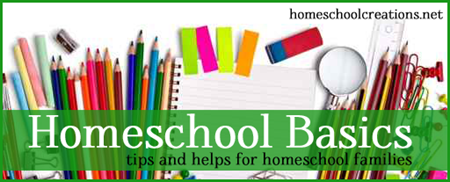
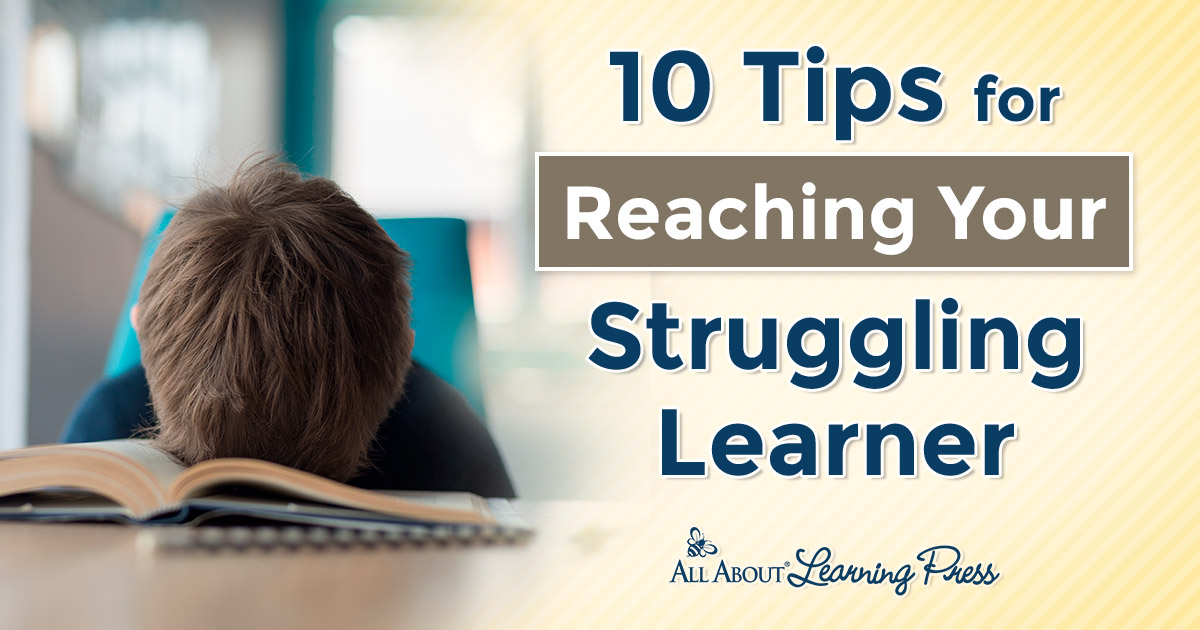
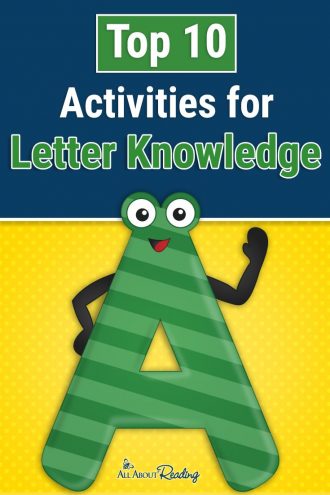
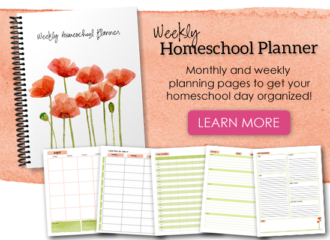

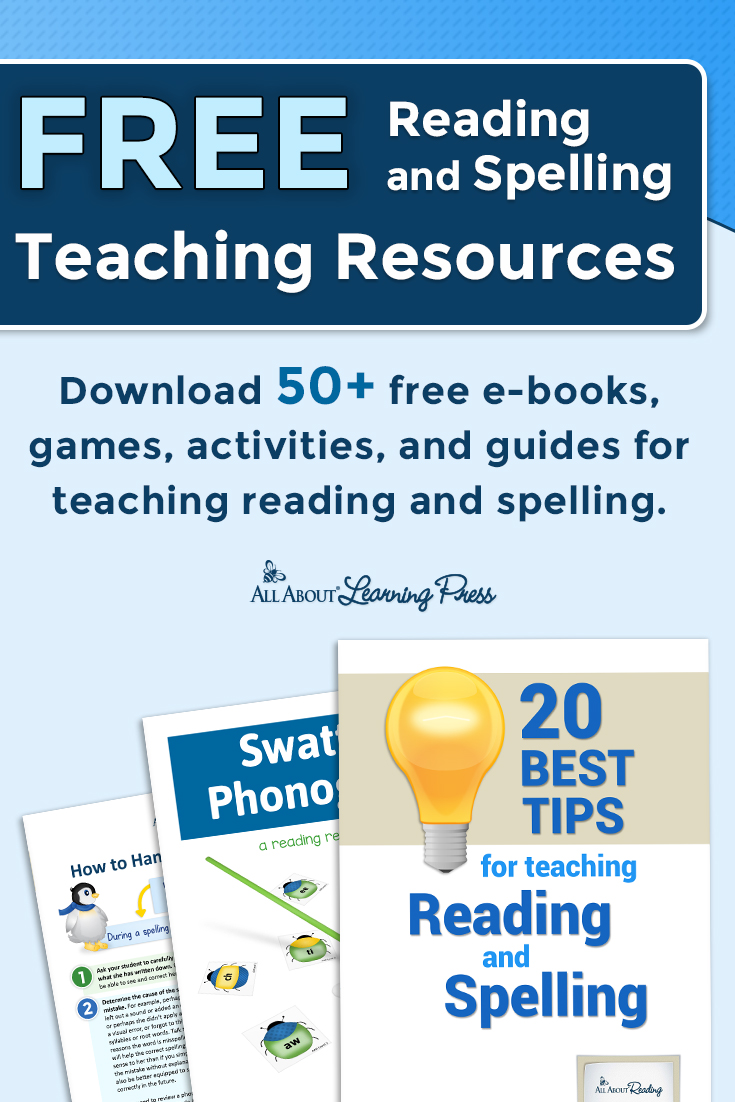
 The printables shared on this site are FREE of charge unless otherwise noted, and you are welcome to download them for your personal and/or classroom use only. However, free or purchased printables are NOT to be reproduced, hosted, sold, shared, or stored on any other website or electronic retrieval system (such as Scribd or Google docs). My printables are copyright protected and I appreciate your help in keeping them that way.
If you download and use some of my printables and then blog about them, please provide a link back to my blog and let me know - I'd love to see how you are using them! Please be sure to link to the blog post or web page and not directly to the file itself. Thank you!
The printables shared on this site are FREE of charge unless otherwise noted, and you are welcome to download them for your personal and/or classroom use only. However, free or purchased printables are NOT to be reproduced, hosted, sold, shared, or stored on any other website or electronic retrieval system (such as Scribd or Google docs). My printables are copyright protected and I appreciate your help in keeping them that way.
If you download and use some of my printables and then blog about them, please provide a link back to my blog and let me know - I'd love to see how you are using them! Please be sure to link to the blog post or web page and not directly to the file itself. Thank you!
Funny you would ask that. I did a post recently about my style. It seems I do all of the above and then some. I named it. http://grannyteacher.blogspot.com/
I think my style is probably unit based, but I went against my better judgement and tried to fit myself into a couple of other slots this yr. I am making better plans for next yr. :)
I am eclectic in my teaching style leaning mostly toward Charlotte Mason and Literature-based Unit Studies.
Great descriptions! :) I really love the idea of Charlotte Mason style of learning, yet there are some areas where the trained teacher in me just can’t let go of the traditional methods! With that in mind, we decided to give Heart of Dakota a try next year because it seems to have some terrific elements of Charlotte Mason while still having the freedom to choose traditional texts for some subjects.
I know what you mean about mixing and matching. :) Same here – there are parts of me that have a hard time letting go of some traditional methods too!
Thanks for sharing this info! I’ve only been at this a year and was unaware of all of these terms until people started asking me about them. I had no clue what they were talking about. Now that we’ve adjusted to this new life of home schooling, and tried out different methods, we use the Montessori Method combined with Unit Studies. I found it great for our kiddos with special needs.
Great break-down of the different teaching styles. I believe our family is a little of each (except for probably classical)…we’re pretty eclectic. I like Montessori a lot too.
I know I didn’t add Montessori, but thanks for mentioning it as well!! :) Overall, I think we end up pretty eclectic too!!
guess you didn’t like my comment? it wasn’t cruel at all but I did send you to my little tiny blog with a whole 8 followers to see what I had posted the same day about the subject. sorry if I offended you by letting you see what I posted
BethAnne
I haven’t seen your comment. I go into my moderation panel every few days, but if you shared a link, it would have gone there first. I had some spammers leaving links to inappropriate sites, so don’t be offended if it doesn’t show up right away. :) Please don’t take it personally.
Jolanthe
Thanks for such a great overview–I’m pinning it! We’re very eclectic–most often we have unit studies and Charlotte Mason tendencies. ;)
In your research did you come across anything that talked about the Bank Street Method? Its interesting but I went to this amazing graduate school called the Bank Street School of Education which is a leader in progressive education and actually believes that Montessori is a bit too structured. I just don’t seem to see anyone reference their methods around which are perfectly suitable for home schooling and was wondering what you found.
I haven’t – now I’ll have to go look it up! :)
I am really impressed with the Thomas Jefferson Education. Have you heard of them?
I haven’t – do you have a link?
Hi! Im Valerie this is my story, summed up to this point:
Well this was our first year of attempting and attending the Home schooling option… My husband was layed off his “permanent” position at work last year, so we found ourselves asking God to lead the way. My daughter approching kinder and my son 3rd grade i checked out public schools, because at the time we were in a Christian Private School, and got so scared of it all I knew I was about to home school. anyway… the only thing I knew is what the school we were already in used for kinder and that was A Beka. I loved how that was for my son three years prior so i went with that. oh boy, dont get me wrong, I love A beka even still, but im wore out. i want a more relaxed approch this year. We are finding our selves having to travel wherever my husband can find some contracted work for a period of time and then go from there to here back to there again. i need something to work with us not be so complicated that it works against us.
So I think with the research iv been doing I choose Eclectic for sure. What does anyone have to say about Diana Waring for History?
I don’t know much about Diane Waring history…I’m sorry!
Jolanthe– Thank you so much for your blog. For all the information and for making homeschooling seem doable. You are my inspiration! I am currently living in a rural village in Alaska and this fall will embark on homeschooling our five-year-old twins. I am very nervous, but also excited. I just wanted you to know that I love your blog!!!
-Shelly Cunningham
http://www.loganandjack.blogspot.com
rcunningham18@hotmail.com
Have a WONDERFUL year and have fun!! That is so exciting!! :)
I have never really sat down and said “I am this teaching style” even though I know about the different ones. I would say I am more of eclectic. We are more traditional in some subjects, charolette mason in others and we enjoy unit studies too. My 4 year old is more of the unschooled method since he is of course only 4 years old.
My style is Eclectic….
I’ve tried the traditional route for most of my homeschooling journey, but now we are leaning more toward Charlotte Mason mixed with using old school books that you can find via the public domain.